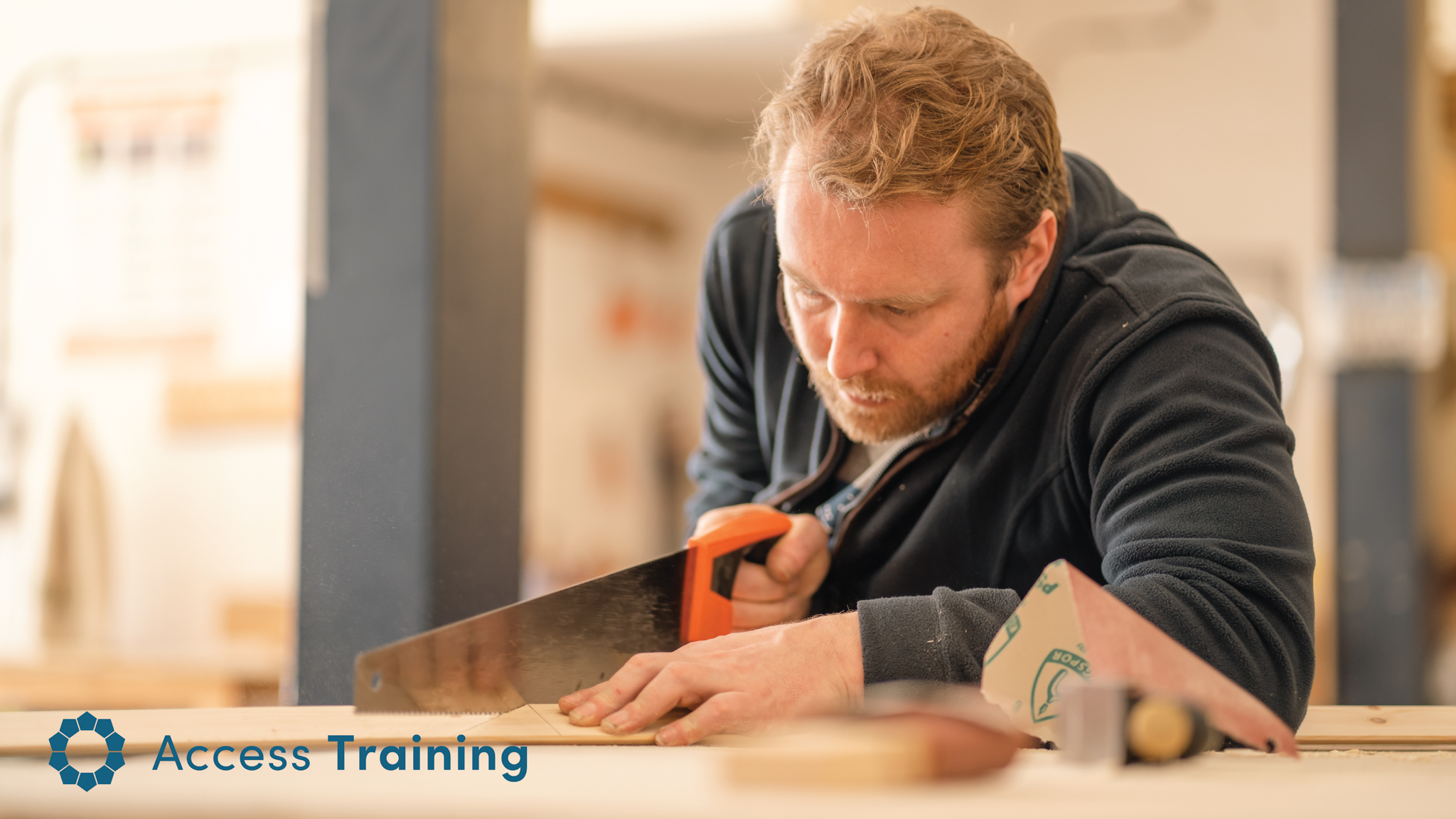
If you have been feeling unfulfilled in your current career or job position, maybe you have been thinking about a change for a while, but have never got round to actually taking any action.here at Access Training we aim to make it as easy as possible to find and enrol onto your perfect trade training course.
To help make finding your course even easier, we have designed a new course finder feature on our homepage. All you have to do is simply select which trade you are interested in learning and you will be taken to the relevant course page. For instance, if you are interested in beginning a new career as a plumber, click “plumber” on the course finder and it will take you to our “train to become a plumber” page, on which you will find all the courses we have available, along with a detailed description for each course.
At Access Training, we specialise in delivering top quality trade training courses. If you have little to no experience in your chosen trade, then do not worry, or training courses are designed specially to turn the complete novice into an expert in the shortest time possible.
What courses do we offer at Access Training?
Plumber
If you are interested in becoming a professional plumber we can help. For the complete novice, we offer 3 courses all offering varying levels of qualifications. If you would like to be a Domestic Plumber, then our Essential Plumbing Course is perfect for you. You will learn all the fundamental skills and theory that you will need to become a plumber, and upon completion you will be awarded a city and guilds plumbing qualification.
For the more ambitious, we offer more comprehensive plumbing courses, our Professional Plumbing Course where you will learn the basics and work towards your NVQ Level 2 in plumbing and Heating, allowing you to take more advanced work after completion. Finally, our Premier Plumbing Course, which will not only train you as a plumber, but you will also train to be a qualified gas engineer.
Electrical Courses.
Like the plumbing courses above, we offer a range of Electrical courses for all you budding electricians out there. If you are a complete beginner, with little to no knowledge in electrics and would like to learn the basics of electrical work, and gain essential qualifications, then our Essential Electrical course is perfect for you. In this short course you will learn the 17th edition electrical regulations, and Part P Domestic Electrical Installer.
Again, if you would like to take on more advanced work after you become a fully trained electrician, our Professional Electrical Course, upon completion of this course you will be efficient in domestic installation jobs and you will become qualified to inspect and test commercial, domestic or industrial electrical installations. Throughout this course you will also gain 5 industry qualifications.
If you are looking to become an electrician, our Premier Electrical Course, is rivalled by none. Upon completion of the Premier Electrical Course, you will be an expert in both domestic and commercial electrical work, and gain 6 essential industry qualifications including, Part P, 17th edition, PAT testing, Inspection and Testing, Periodic inspection and testing, and Design, Erection and Verification qualifications.
Gas Engineer
Here at Access Training we are incredibly proud of the quality of the courses that we provide to our students, across a range of disciplines. As well as Plumbing and Electrical courses, we also offer a range of Gas Engineering courses. These courses are ideal if you are a plumber looking to develop your skill set or if you are a complete beginner who would like to become a gas engineer.
If you are interested in learning the fundamentals of Gas Engineering, or you are looking for a refresh course, then our Essential Gas Course is the perfect course for you. Here you will learn the basics such as, practical skills, understanding installations, how to repair, service and maintain gas boilers, and much more!
If you want to become a fully qualified gas engineer, we offer our Professional Gas Course which will equip you with all the advanced knowledge you need to succeed in this field. We will also help you work towards your ACS Certificate. Our Premier Gas Course will not only train you to become a fully qualified Gas engineer, you will also be able to install and maintain electrical appliances.
We also offer a range of construction courses, here at access training, including;
If you are interested in enrolling onto any of our courses, or would like any information about the courses we offer, please get in touch!